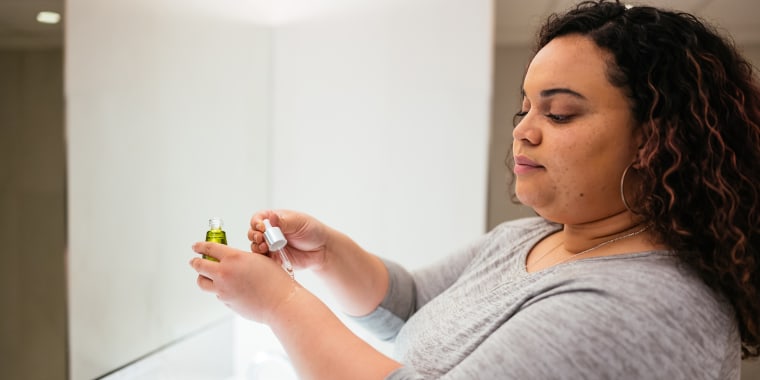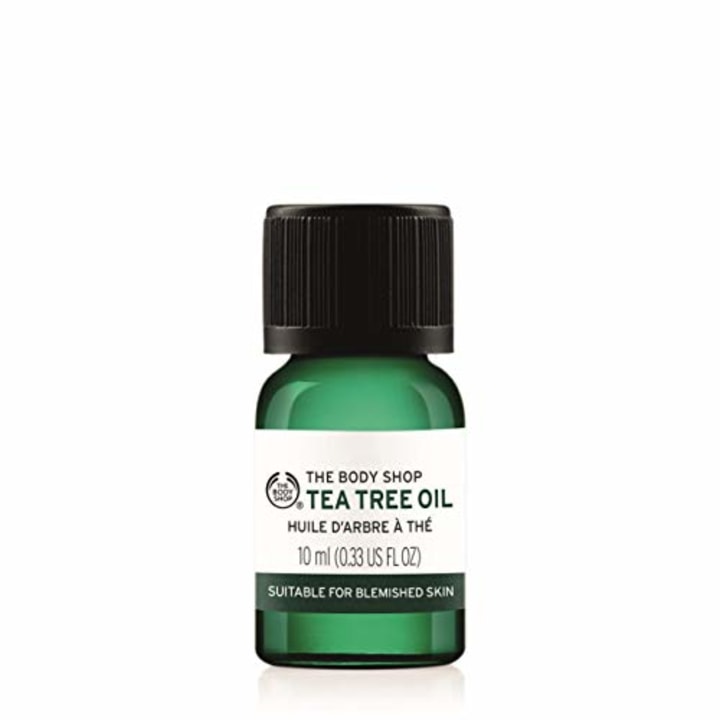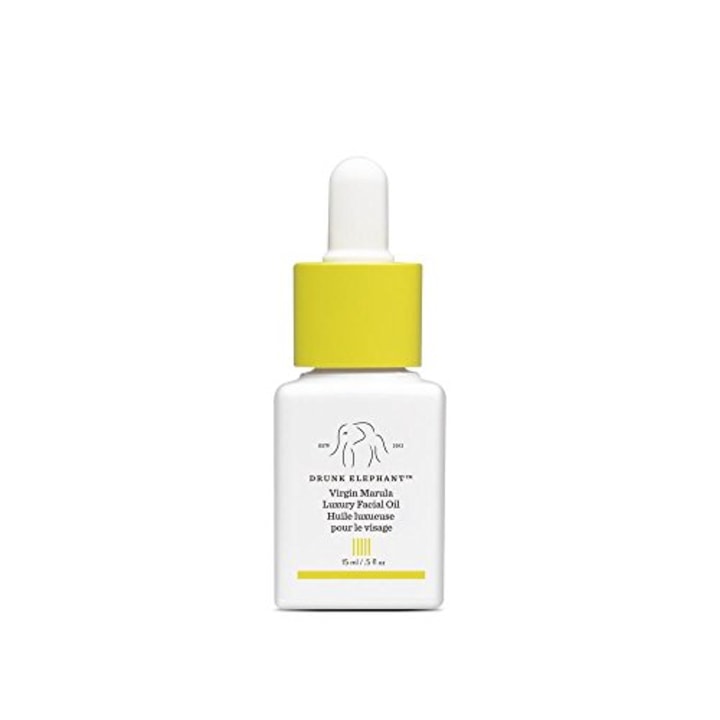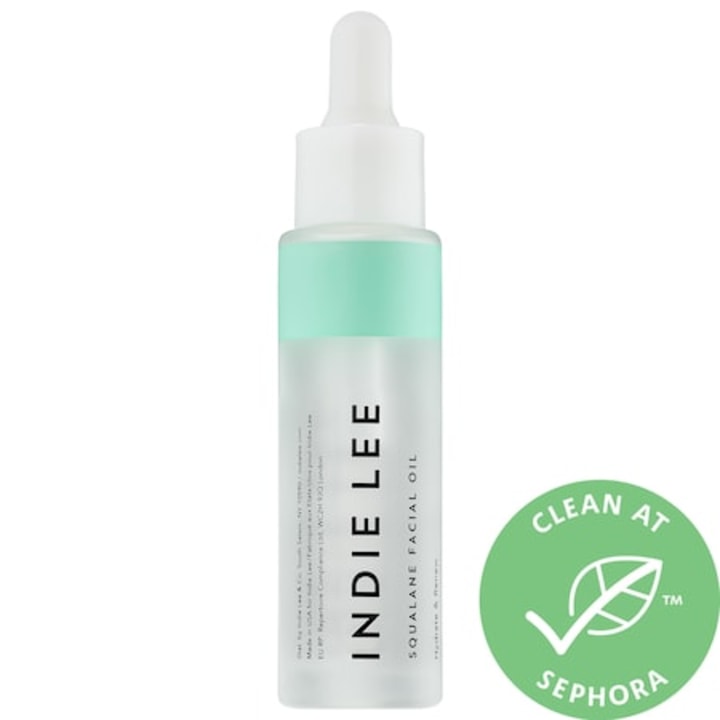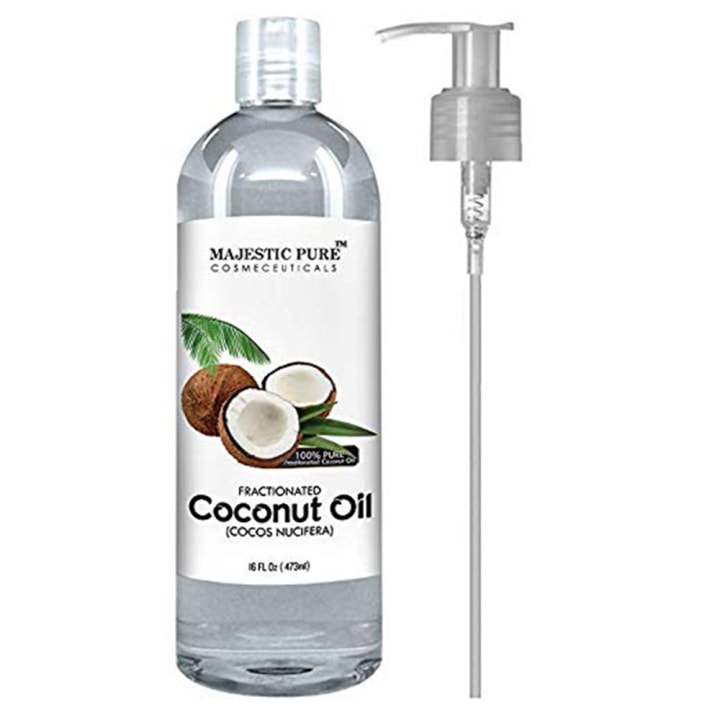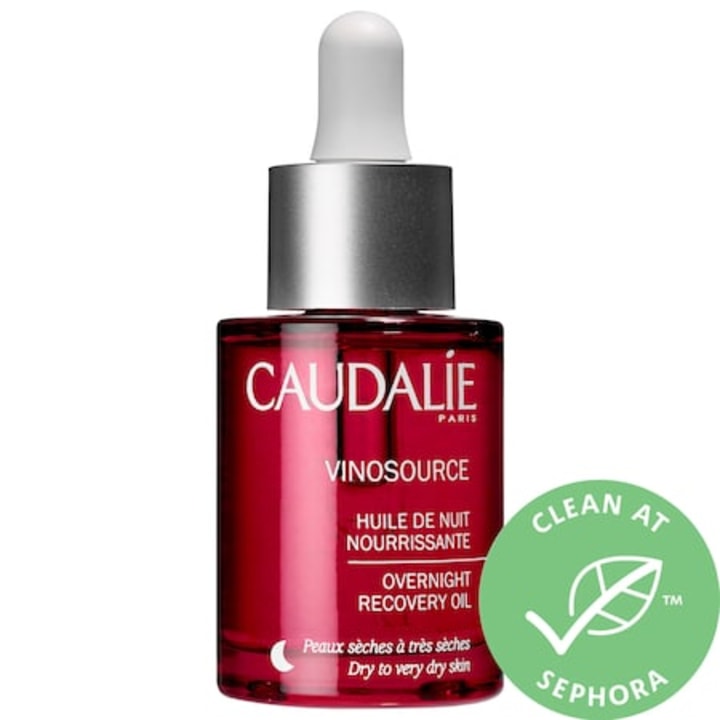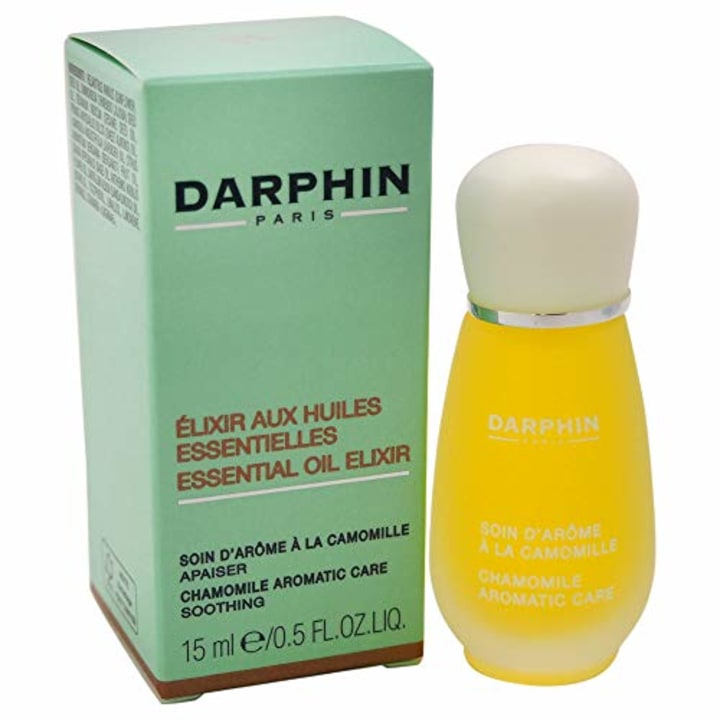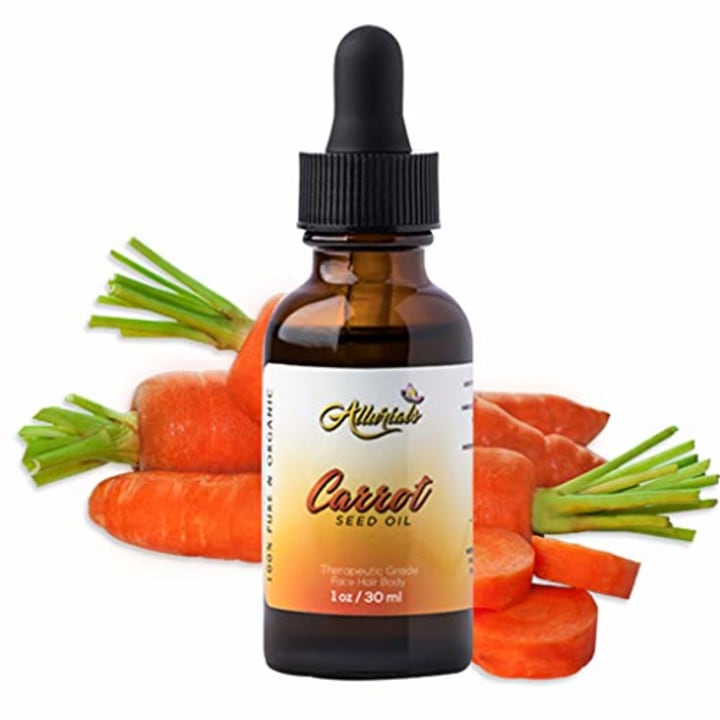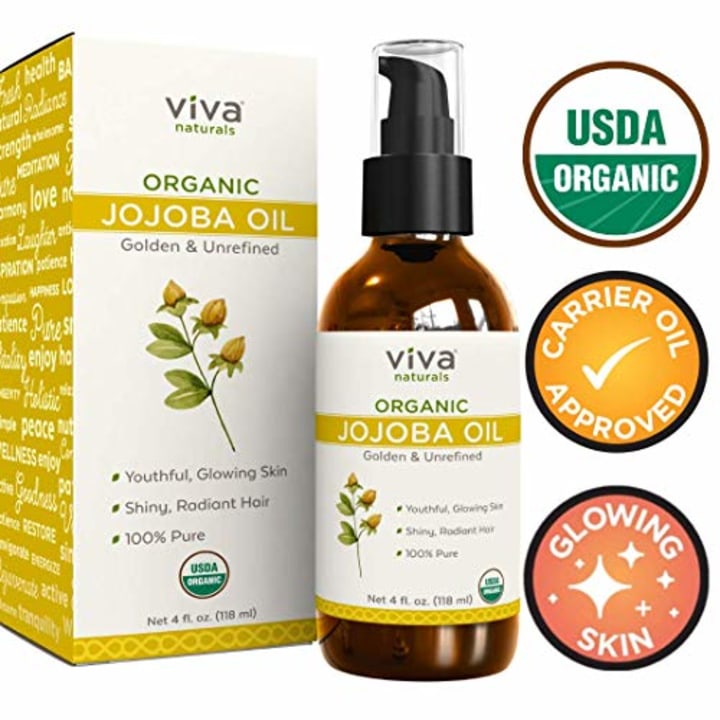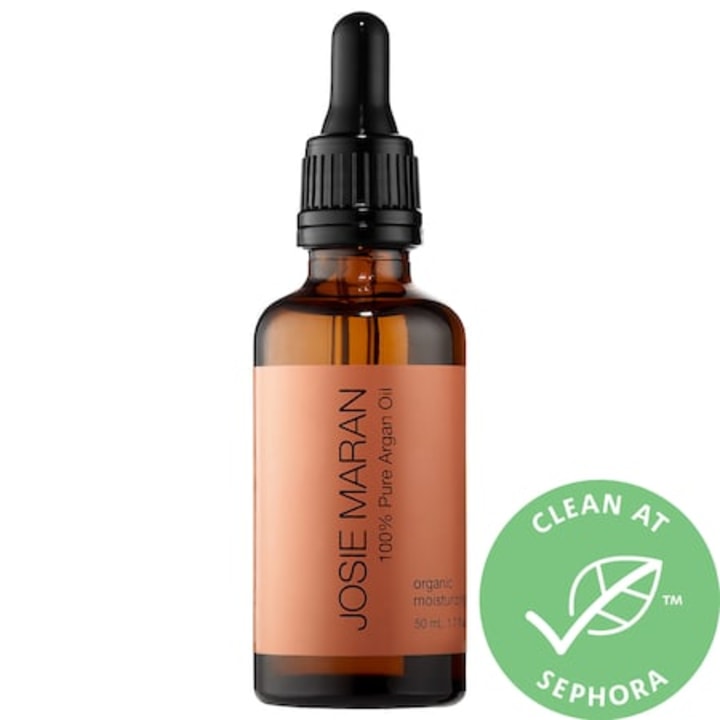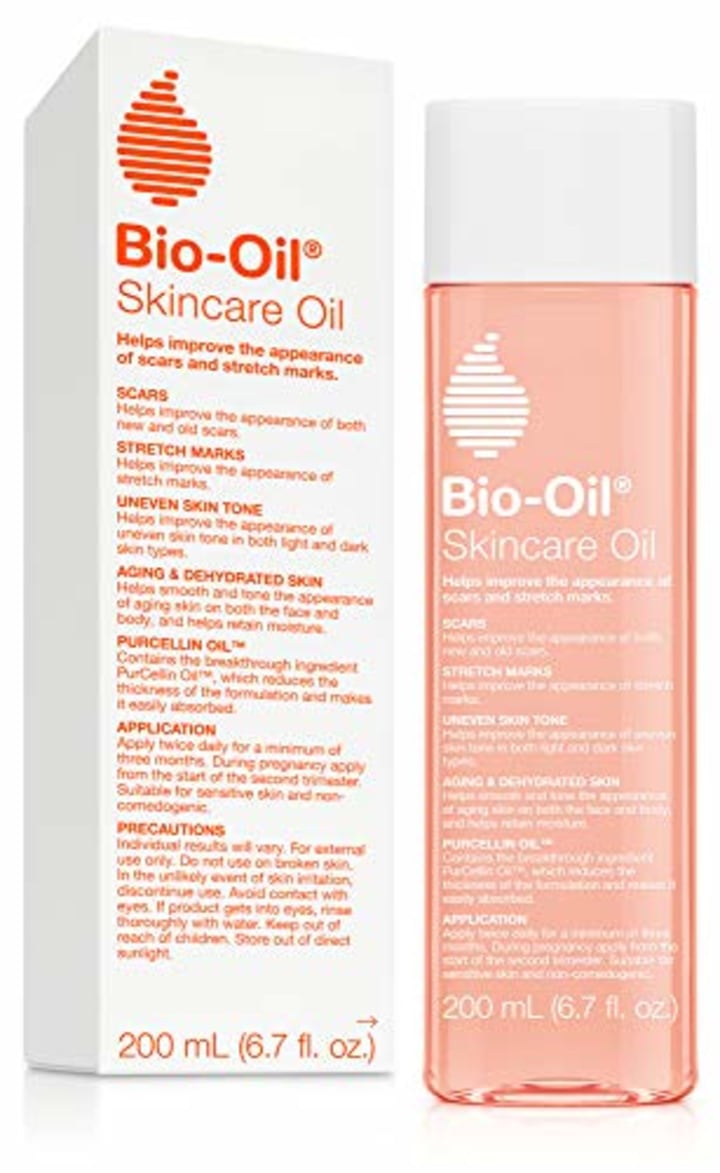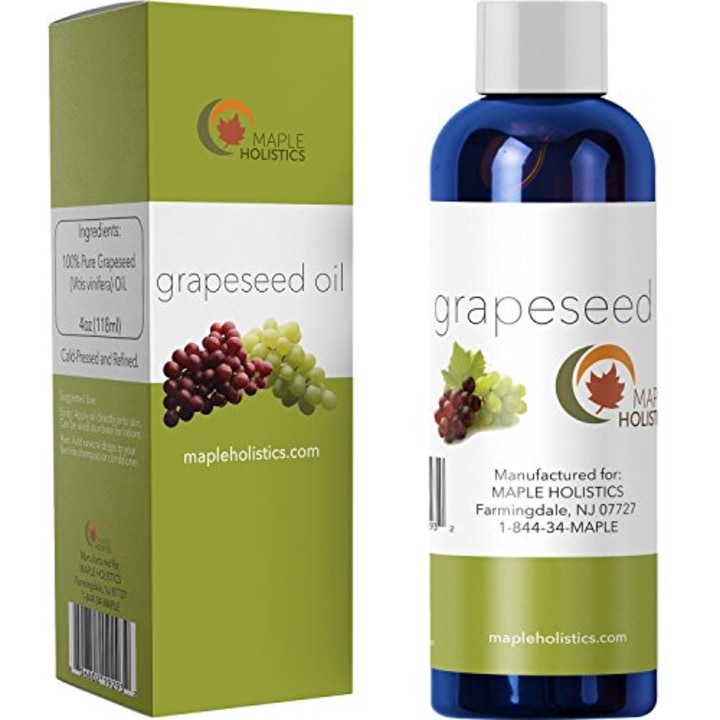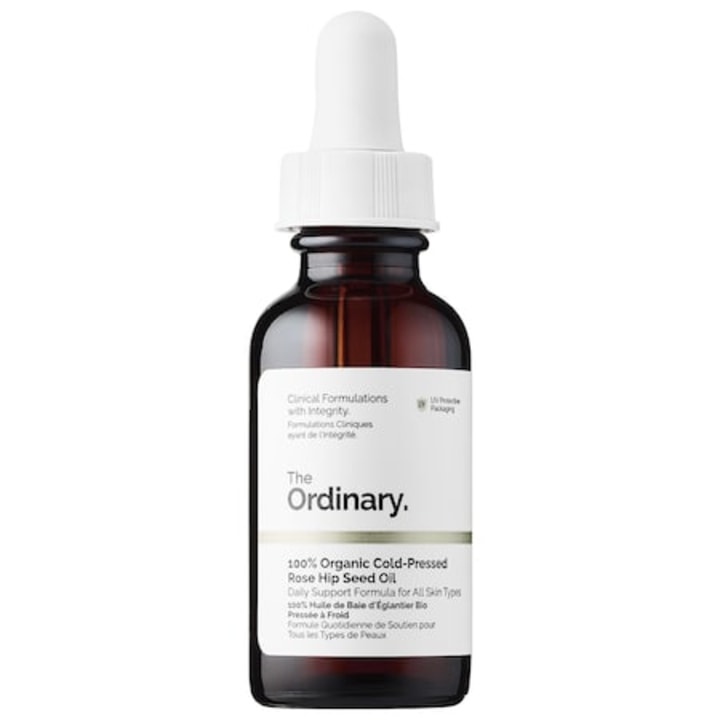Typically, when you hear the words "oil" and "skin" in the same sentence, it's a recipe for disaster. But sometimes oil can actually set you on the path towards a gorgeous complexion. Crazy as it sounds, face oils can work wonders on any number of skin care woes, and transform skin from dull to dazzling.
Want to give them a try? TODAY Style consulted top dermatologists to see what types of face oils work best and what potential benefits they can offer to your skin. We're also breaking down some of the must-try face oils to add to your routine!

What are face oils?
Put simply, face oils are one of many skin care solutions out there. They're specially tailored to work with your natural oils to help keep your skin balanced.
"Our skin naturally makes oils and lipids, which help prevent water loss from our skin and keep it hydrated. Face oils are substances that help complement our natural oils," said Dr. Noelani González, director of cosmetic dermatology at Mount Sinai West in New York City.
Face oils can have many potential benefits, but their overall purpose is to serve as an extra level of protection for your skin.
"If you think of the skin as a brick wall, the skin cells are the bricks and the oils and lipids are the mortar, which holds the bricks together in place and prevents anything from seeping through. Face oils are considered a type of emollient, which means they help strengthen the outer layer of your skin — the stratum corneum — by softening and sealing it, preventing water loss," González said.
Face oils are often plant-based, according to Cleveland Clinic dermatologist Dr. Jennifer Lucas, and are typically derived from the various parts of plants — flowers, leaves, roots, etc. And since they can include a range of potent ingredients, the potential benefits are endless.
"While they're predominantly known for their hydrating properties, face oils can also aid your anti-aging routine and provide antibacterial and healing properties," Lucas said.

Where do they go in a skin care routine?
Serums, moisturizers, oils, oh my! With so many skin care solutions available, figuring out which order to apply them in can be baffling. But it's actually easier than you may think!
"A good rule of thumb when applying skin care products is to go from lightest to thickest. So apply your lightest products first, such as serums or oils, and move your way up to the thickest products, such as moisturizers and sunscreen," Gonzálezsaid.
Naturally, everyone will have a different regimen depending on their skin type and the desired outcome of the oil, but one common application tip is to use a face oil to multitask with your existing skin care products.
"You can always add a few drops to your facial moisturizer or serum to achieve additive properties. Face oils can also be applied after serum to allow the treatment effects of the serum to be 'locked into' the skin," Lucas said.
Face oils can be applied either in the morning or evening, or can even be used as a spot treatment to tackle skin issues like dark spots and dryness.

Who should use face oils?
As with any skin care product, face oils should be cautiously incorporated into your routine at first to see how your skin responds.
"Face oils can be a good addition for any skin type just as long as it's done in moderation. They need to be given a test run first," González said.
And as always, you should consider the needs of your unique skin type before diving in.
"For instance, I warn against using face oils if you are acne-prone as these oils can be very pore-clogging and often add fuel to the pimple fire," said board-certified dermatologist Rita V. Linkner.
According to González, dry skin types benefit the most from face oils, as they act as emollients by sealing and preventing any water loss. But that doesn't mean that acne-prone skin types have to swear off of them for good.
"If it's something the patient wants to try, I'll usually recommend they start slow, only mixing a few drops in with your moisturizer and using it only 1-2 times per week to test it out. If you do break out, then this should be something you only use sporadically, such as when you feel your skin is very dry," González said.
There are countless face oil options out there, but which one is right for your skin? We asked the experts!
The best face oils for acne-prone and oily skin
- The experts say: "There are some facial oils that can actually help your skin produce less pore-clogging sebum. These facial oils contain ingredients that can kill acne-causing bacteria and help slough off dead skin cells," said Dr. Debra Jaliman, a board-certified dermatologist in New York City and author of the book "Skin Rules: Trade Secrets From a Top New York Dermatologist."
- Face oils to try: jojoba, aloe vera, tea tree, squalane, marula
The Body Shop Tea Tree Oils, $10, Ulta
This light, non-comedogenic oil is ideal for acne-prone skin due to its antibacterial and anti-inflammatory properties. But watch out if you're prone to sensitivity!
Drunk Elephant Virgin Marula Luxury Facial Oil, $40, Amazon
Marula oil is always a great choice for acne-prone skin, since it's light and won’t clog pores.
The best face oils for dry skin
- The experts say: "For ultradry skin, massage in a facial oil, then use a rich moisturizer on top. If you have dry skin, a moisturizer with hyaluronic acid in conjunction with a facial oil would work well. Hyaluronic acid plumps the skin and replenishes any moisture loss," Jaliman said.
- Face oils to try: coconut, rosehip, olive, sunflower, argan, maracuja, squalane
Indie Lee Squalane Face Oil, $34, Sephora
This ultrahydrating face oil is generally safe for most skin types, but particularly useful for those with dry complexions.
Majestic Pure Fractionated Coconut Oil, $15, Amazon
This Amazon favorite has many beauty uses, and can be used as a face oil to hydrate dry skin.
The best face oils for sensitive skin
- The experts say: "If you have sensitive skin, you want to test out any oil on a tiny spot, like your jawline or neck, before you apply it to your entire face. If it's been a few days and your skin has reacted well, then you can try it out on your face," González said. "Those with sensitive skin should avoid tea tree oil as it could irritate them."
- Face oils to try: chamomile, lavender
Caudalie Vinosource Overnight Recovery Oil, $50, Sephora
This potent oil combines the power of grapeseed oil, jojoba oil and rosemary oil to soothe sensitive skin.
Darphin Care Essential Oil Care, $46, Amazon
This chamomile-infused oil can help calm easily irritated, sensitive skin.
The best face oils for combination skin
- The experts say: "Those with combination or normal skin and no other concerns can start with oils that have fatty acids and antioxidants in them to help seal their skin and protect against the damaging effects of pollution," González said.
- Face oils to try: marula, jojoba, grapeseed, carrot seed
Carrot Seed Oil, $9, Amazon
Carrot seed oil is rich in antioxidants and moisturizes skin without clogging pores, so it can balance out combination skin.
Viva Naturals Jojoba Oil, $10, Amazon
Jojoba oil has a light texture that won't clog pores and helps minimize shine on oily sections, so it's ideal for combination skin.
The best face oils for hyperpigmentation
- The experts say: "Argan oil is rich in vitamin E and can help with hyperpigmentation or dark spots," González said.
- Face oils to try: argan, frankincense oil, lemon oil, tea tree, evening primrose, rosehip
Josie Maran 100 Percent Pure Argan Oil, $49, Sephora
Argan oil offers the perfect consistency for multiple skin types, but is particularly is ideal for tackling hyperpigmentation.
Bio-Oil Skin Care Oil, $22, Amazon
Tackle uneven skin tone and texture this multitasking oil often touted as a scar and stretch mark-removing miracle worker.
The best anti-aging oils
- The experts say: "Grapeseed oil has fatty acids and polyphenols, which help with premature aging. It also contains several vitamins, which help moisturize and protect the skin from damaging free radicals," Jaliman said.
- Face oils to try: grapeseed, olive, rosehip, sunflower
Pure Grapeseed Oil, $11, Amazon
Grapeseed oil contains several vitamins that protect the skin from free radicals, one of the main causes of premature aging.
The Ordinary 100% Organic Cold-Pressed Rose Hip Seed Oil, $10, Sephora
Rosehip oil is high in beta carotene, vitamin C and vitamin E, and is ideal for moisturizing and plumping up your skin to retain its youthful appearance.

What about cleansing oils? What’s the deal with those?
Not to be confused with targeted face oils, cleansing oils are an alternative to your daily face wash.
"Cleansing oils are typically formulated with a range of oils, such as virgin olive oil, castor oil, jojoba oil, almond oil, argan oil and coconut oil. To apply, you rub the cleansing oil onto skin for about two minutes then wash with warm water and wipe it off with a washcloth," Jaliman said.
If you're interested in using face oils, cleansing oils can be a great gateway product to see how your skin will respond to oils.
Cleansing oils aren't any better or worse than your average facial cleanser, and it's really all about personal preference. They can, however, have certain benefits.
"A cleansing oil should leave your skin feeling moisturized and fresh. It should be lightweight and leave no residue," Jaliman said.
